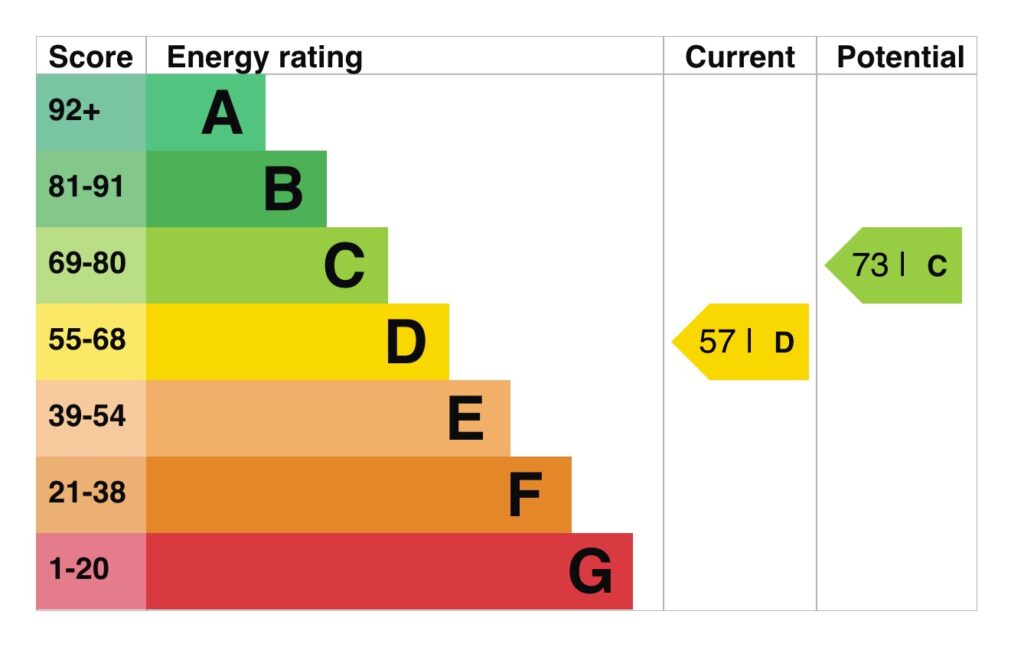What is a HMO?
HMO stands for House in Multiple Occupation. A HMO landlord is someone who owns and rents out a property that is occupied by three or more people who are not from the same household and share facilities like a kitchen or bathroom.
HMO landlords must follow specific regulations and licensing requirements to ensure the safety and welfare of their tenants. These regulations cover areas such as fire safety, hygiene, and the provision of adequate facilities. HMO landlords may also have additional responsibilities, such as providing communal areas for their tenants and ensuring that the property meets certain standards for energy efficiency.
EPC ratings
We have had a number of HMO landlords contact us recently asking if solar panels might be a good option in order to meet new legislation regarding the energy performance of their properties. This involves the rating that you may have seen referred to as a EPC rating.

An Energy Performance Certificate (EPC) is a document that provides information about the energy efficiency of a property. It gives an energy rating on a scale of A (most efficient) to G (least efficient), similar to the ratings used for appliances such as refrigerators or washing machines.
The EPC contains information about the property’s energy use, such as the insulation levels, heating system, and energy-efficient measures such as double glazing or solar panels. It also includes recommendations for improving the property’s energy efficiency and reducing energy bills.
EPCs are required by law in many countries, including the UK and the EU, for most types of properties when they are built, sold, or rented. Landlords and property owners must ensure that their properties have a valid EPC and make it available to potential tenants or buyers.
All existing energy performance ratings can be found on the gov.uk website using the EPC search tool.
Will solar help the property meet the EPC rules?
This all depends on the HMO property in question, as above a lot of factors are taken into account in the EPC rating of a property. However In the majority of cases we have come across, we have been able to find a solar panel system to improve the rating by enough to meet the requirements. So we would defintely recommend considering solar panels as a viable option for changing EPC regulations. You can find more information on our solar panel options here on our solar panels page.
What else can solar panels help with?
In addition to the above EPC benefits, solar panels can be a great investment for HMO (House in Multiple Occupation) landlords for several reasons:
- Reduced energy costs: Solar panels generate electricity from the sun’s energy, which can reduce the amount of electricity the property needs to buy from the grid. This can lead to lower energy bills and more predictable energy costs for both the landlord and tenants.
- Attracting tenants: Installing solar panels can be an attractive feature for potential tenants who are environmentally conscious and looking for energy-efficient properties.
- Government incentives: Governments may offer incentives or subsidies for installing solar panels, such as the Feed-in Tariff in the UK, which pays homeowners for any excess electricity they generate and feed back into the grid.
- Increased property value: Solar panels can increase the value of a property, making it a more attractive investment for landlords.
Overall, installing solar panels can help HMO landlords save money on energy costs, attract tenants, and increase the value of their property, making it a wise investment for the long term.
If you are a HMO landlord and have any questions about solar panels or the new EPC regs, please don’t hesitate to give us a message or call, one of our team would be more than happy to provide some no obligation advice on all things EPC and solar!


